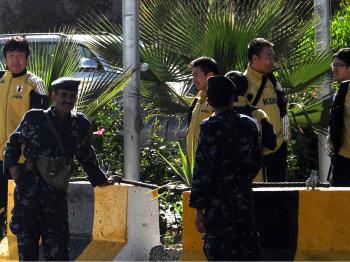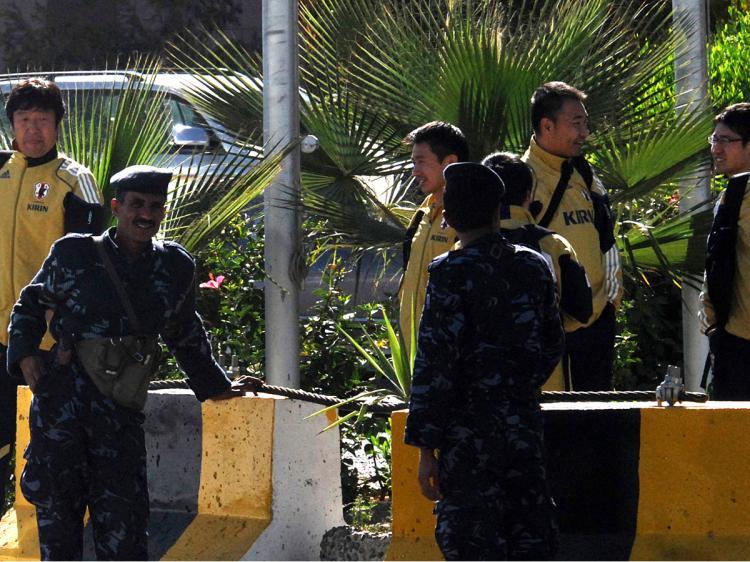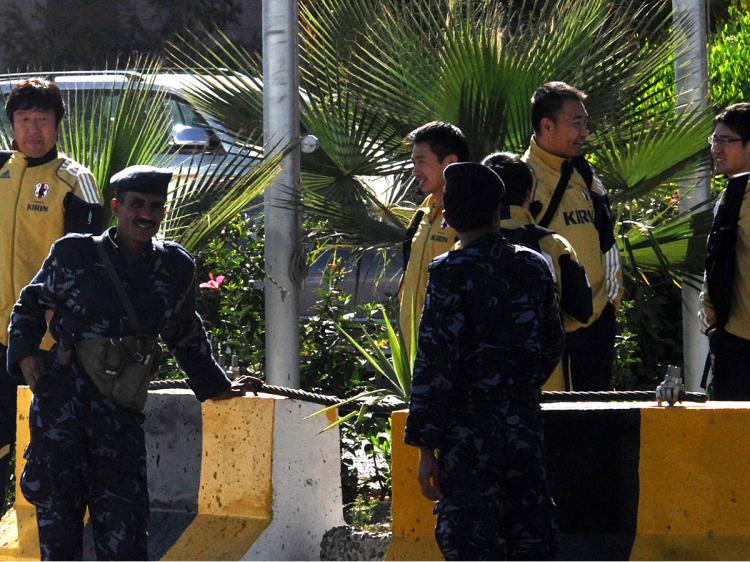France and Japan closed their embassies in Yemen on Monday, while Spain, Italy, and Czech Republic limited public access to their missions.
The U.S. and Britain shut their embassies on Sunday, which according to the Yemeni media, was prompted by an incident in which six trucks loaded with arms and explosives entered the capital Sana’a, and security forces lost track of them.
U.S. Secretary of State Hillary Clinton said on Monday that the situation in Yemen is a “top concern and a threat to a regional and even global instability,” relating to the increased activities of al-Qaeda in the region.
The Middle East country drew international attention after a Nigerian man, who admitted to being trained in Yemen by a local al-Qaeda branch, unsuccessfully tried to blow up a homemade bomb on an airplane bound for Detroit on Christmas Day. After the device caught fire, instead of detonating, the passengers and crew quickly subdued the attacker.
The Yemen branch of al-Qaeda claimed responsibility for the attack.
Stratfor, a global military intelligence think tank, called the operation a “proof-of-concept mission,” warning that “the efforts to improve technical methods to locate improvised explosive device components must not be abandoned” in airport screening systems.
Tribal rebellion in the north and a secessionist movement in the south of Yemen has created lawlessness and instability that has allowed al-Qaeda to take root in the country.
To fight the Islamic insurgents, the U.S. will send more than $70 million in funding and will use special forces teams to train and equip the Yemeni military, Interior Ministry, and coast guard.
The Yemeni news agency reported that the nation’s army forces killed two al-Qaeda militants and injured two others.
The U.S. and Britain shut their embassies on Sunday, which according to the Yemeni media, was prompted by an incident in which six trucks loaded with arms and explosives entered the capital Sana’a, and security forces lost track of them.
U.S. Secretary of State Hillary Clinton said on Monday that the situation in Yemen is a “top concern and a threat to a regional and even global instability,” relating to the increased activities of al-Qaeda in the region.
The Middle East country drew international attention after a Nigerian man, who admitted to being trained in Yemen by a local al-Qaeda branch, unsuccessfully tried to blow up a homemade bomb on an airplane bound for Detroit on Christmas Day. After the device caught fire, instead of detonating, the passengers and crew quickly subdued the attacker.
The Yemen branch of al-Qaeda claimed responsibility for the attack.
Stratfor, a global military intelligence think tank, called the operation a “proof-of-concept mission,” warning that “the efforts to improve technical methods to locate improvised explosive device components must not be abandoned” in airport screening systems.
Tribal rebellion in the north and a secessionist movement in the south of Yemen has created lawlessness and instability that has allowed al-Qaeda to take root in the country.
To fight the Islamic insurgents, the U.S. will send more than $70 million in funding and will use special forces teams to train and equip the Yemeni military, Interior Ministry, and coast guard.
The Yemeni news agency reported that the nation’s army forces killed two al-Qaeda militants and injured two others.






